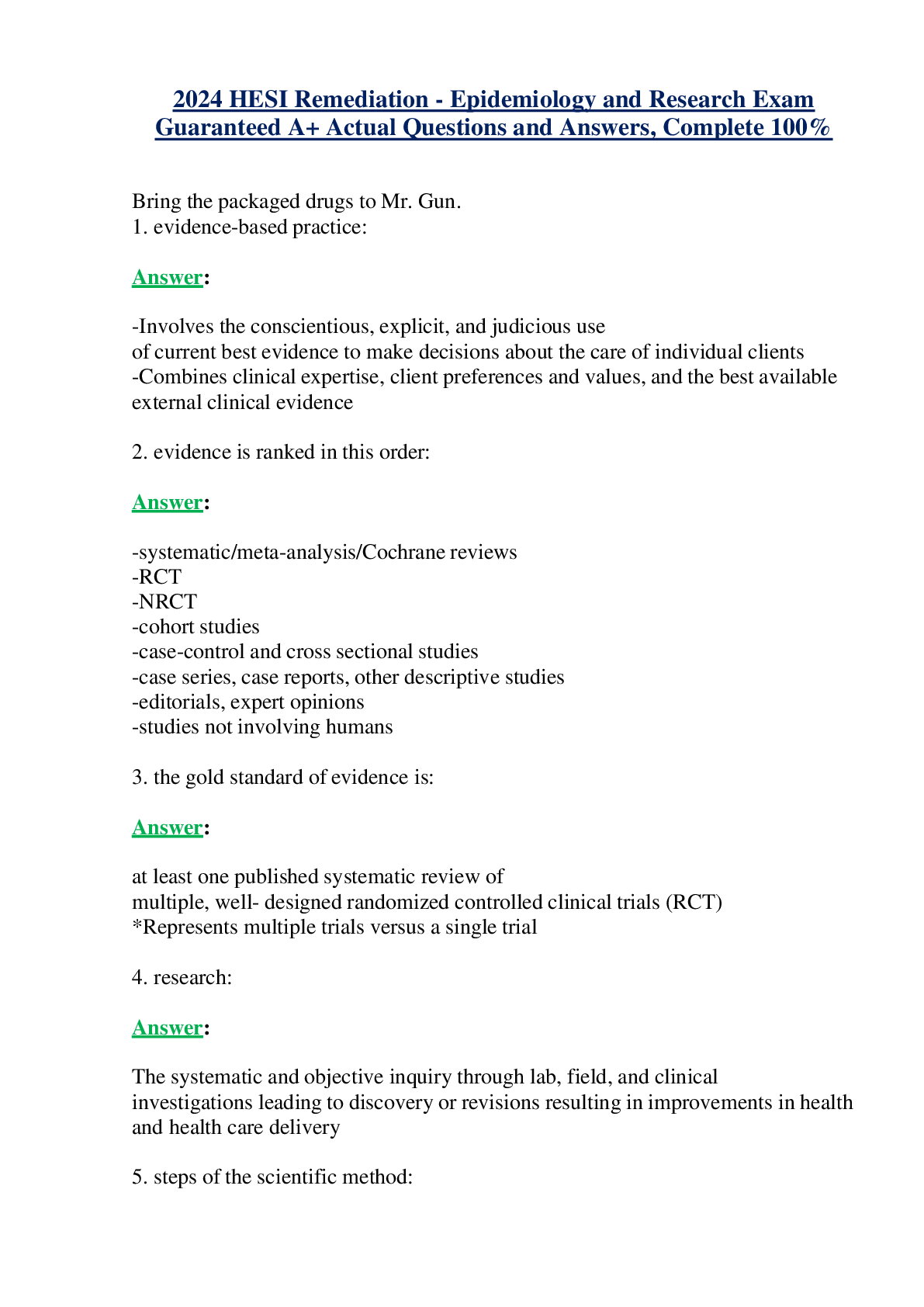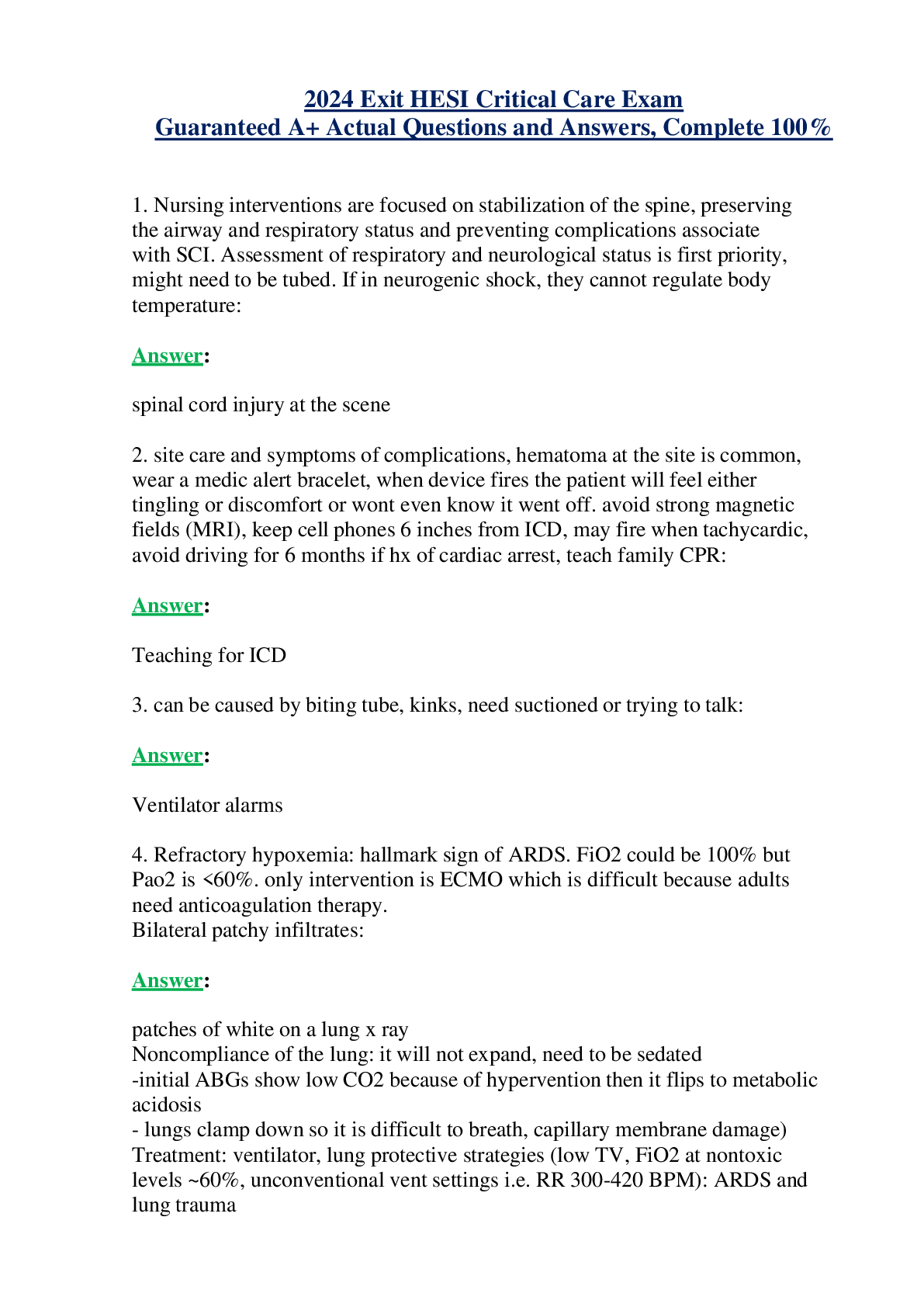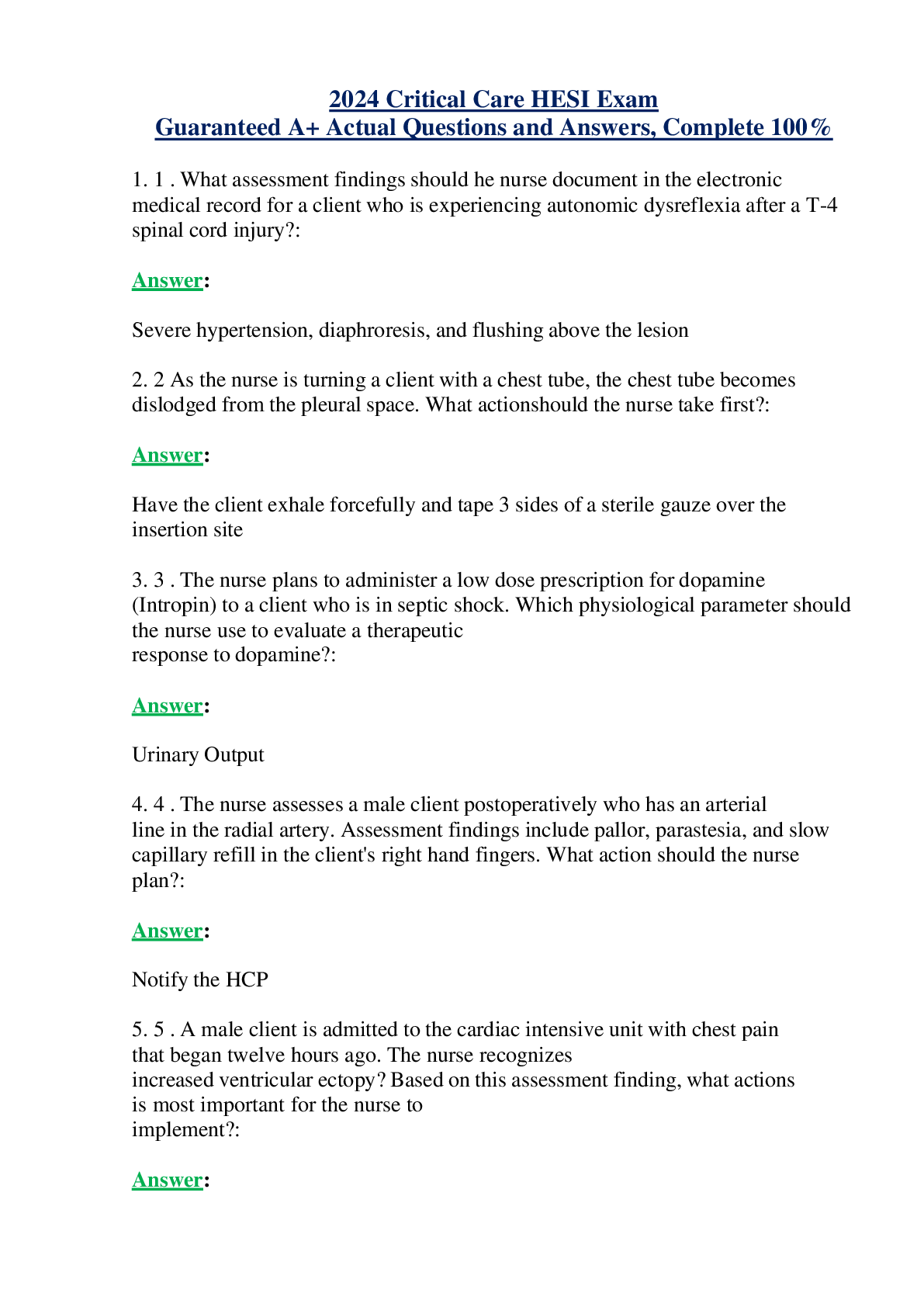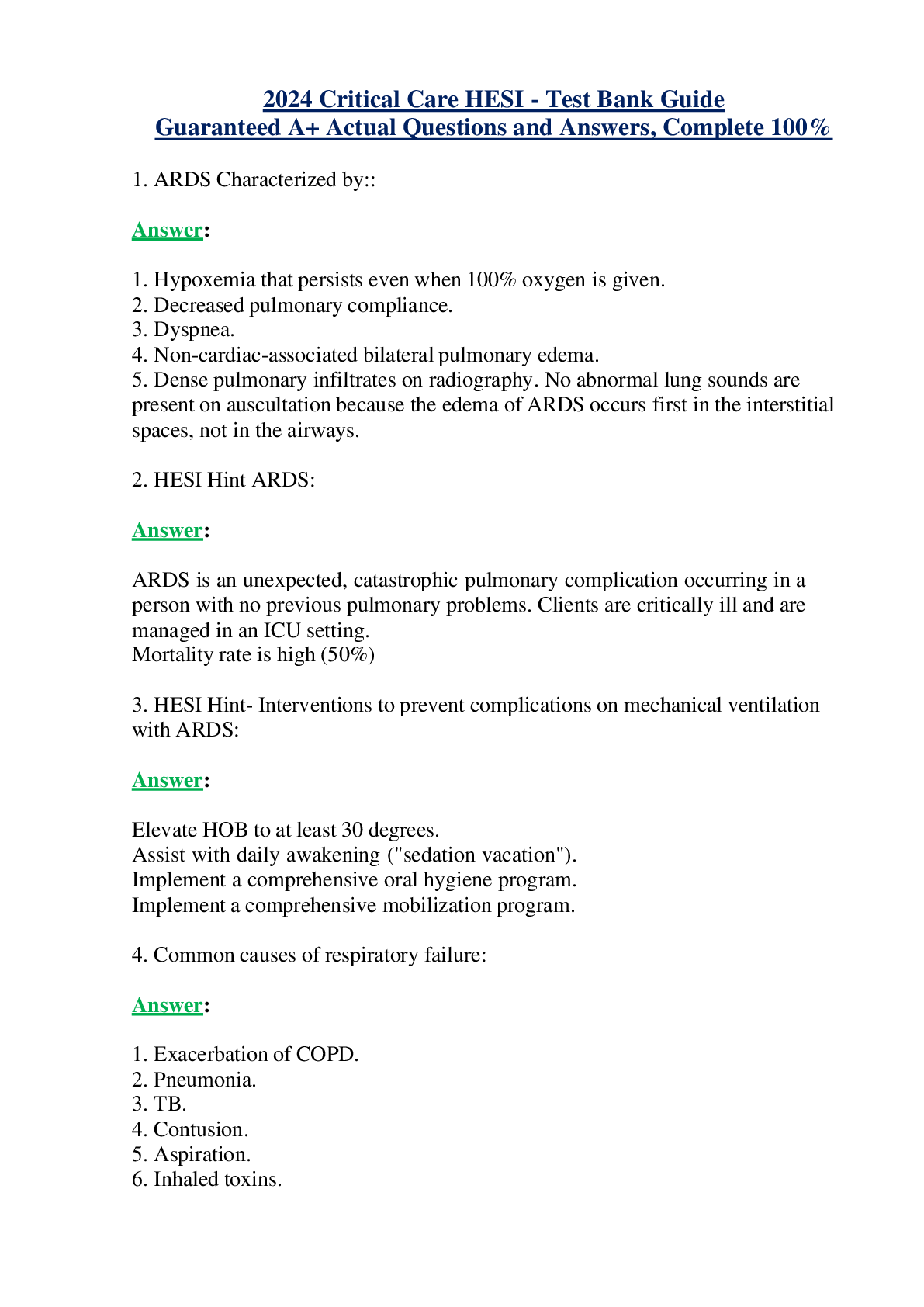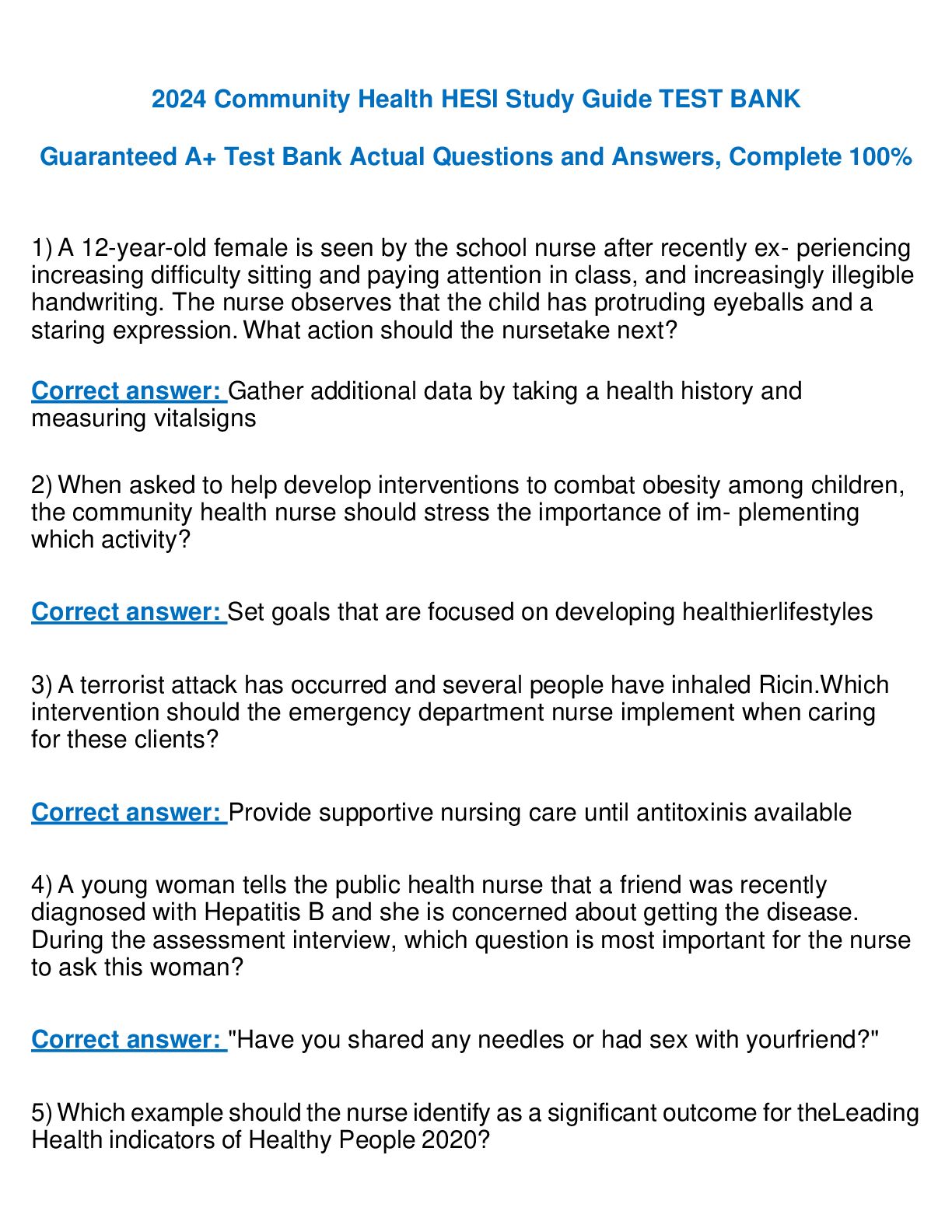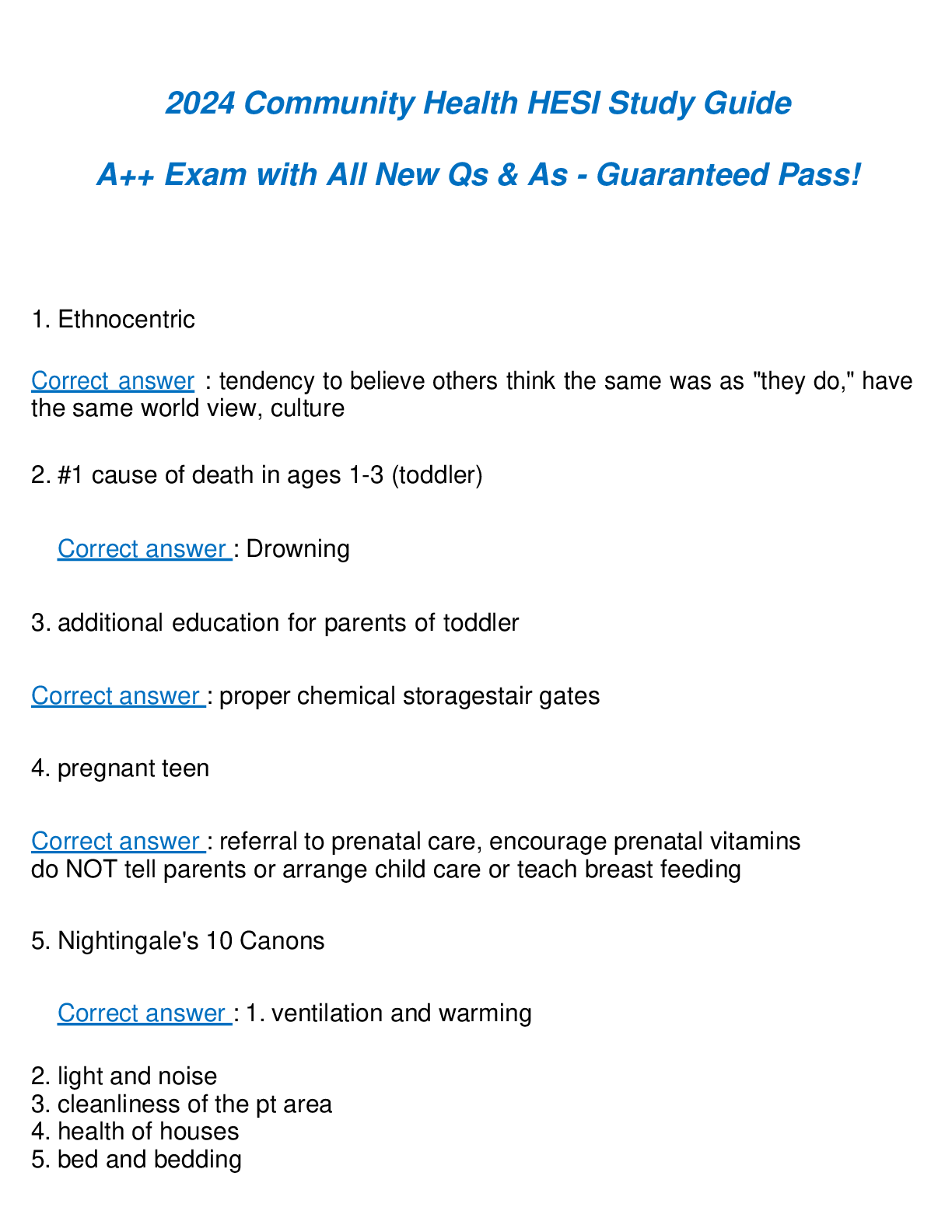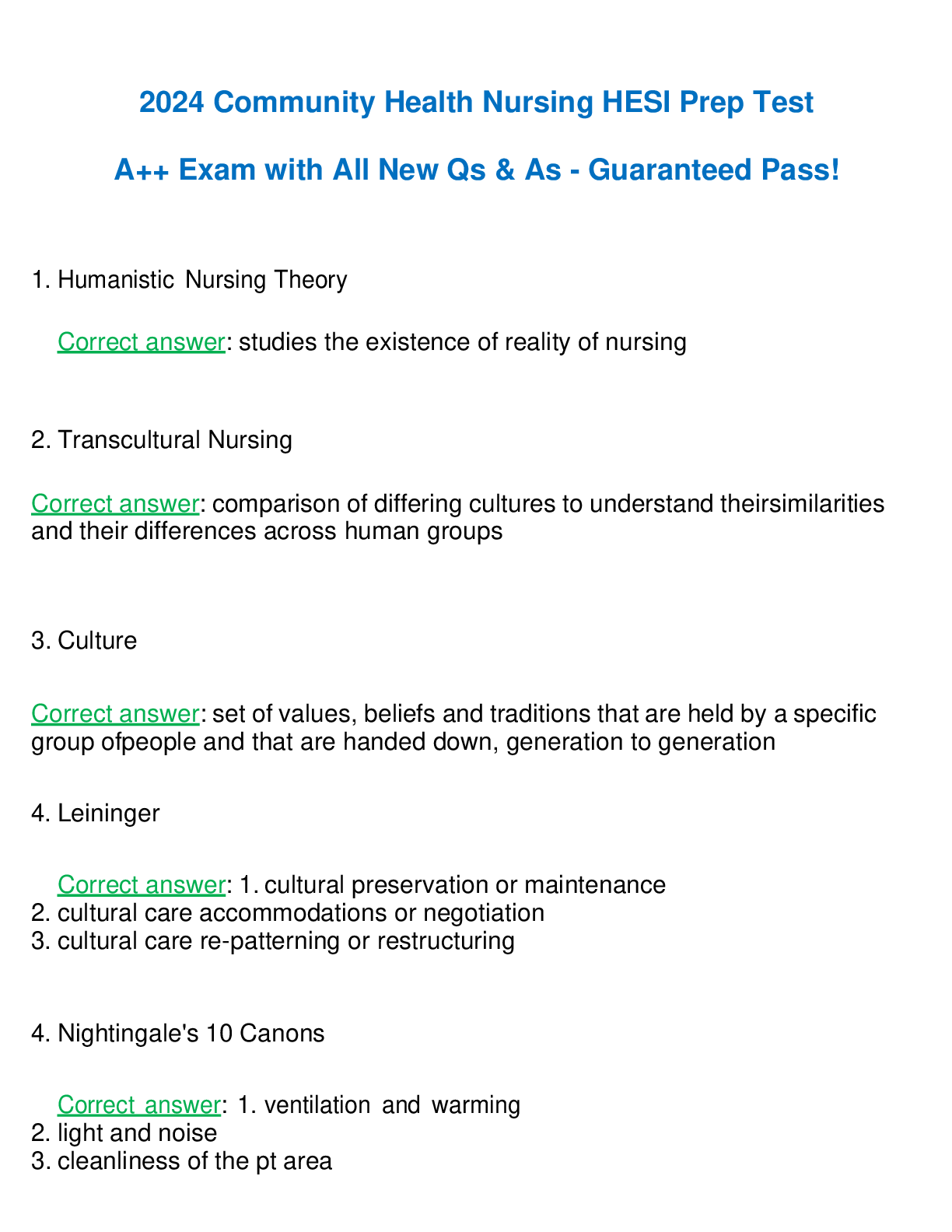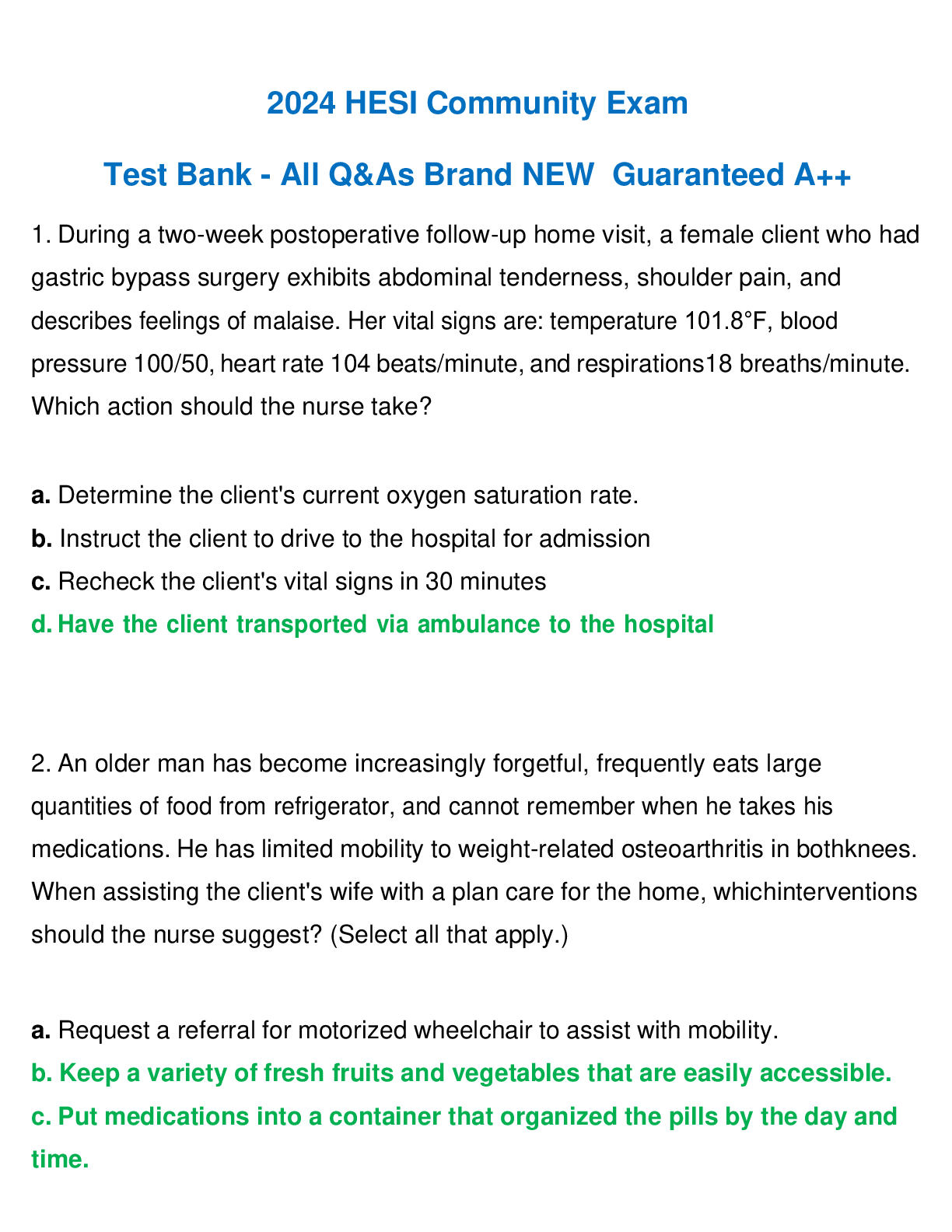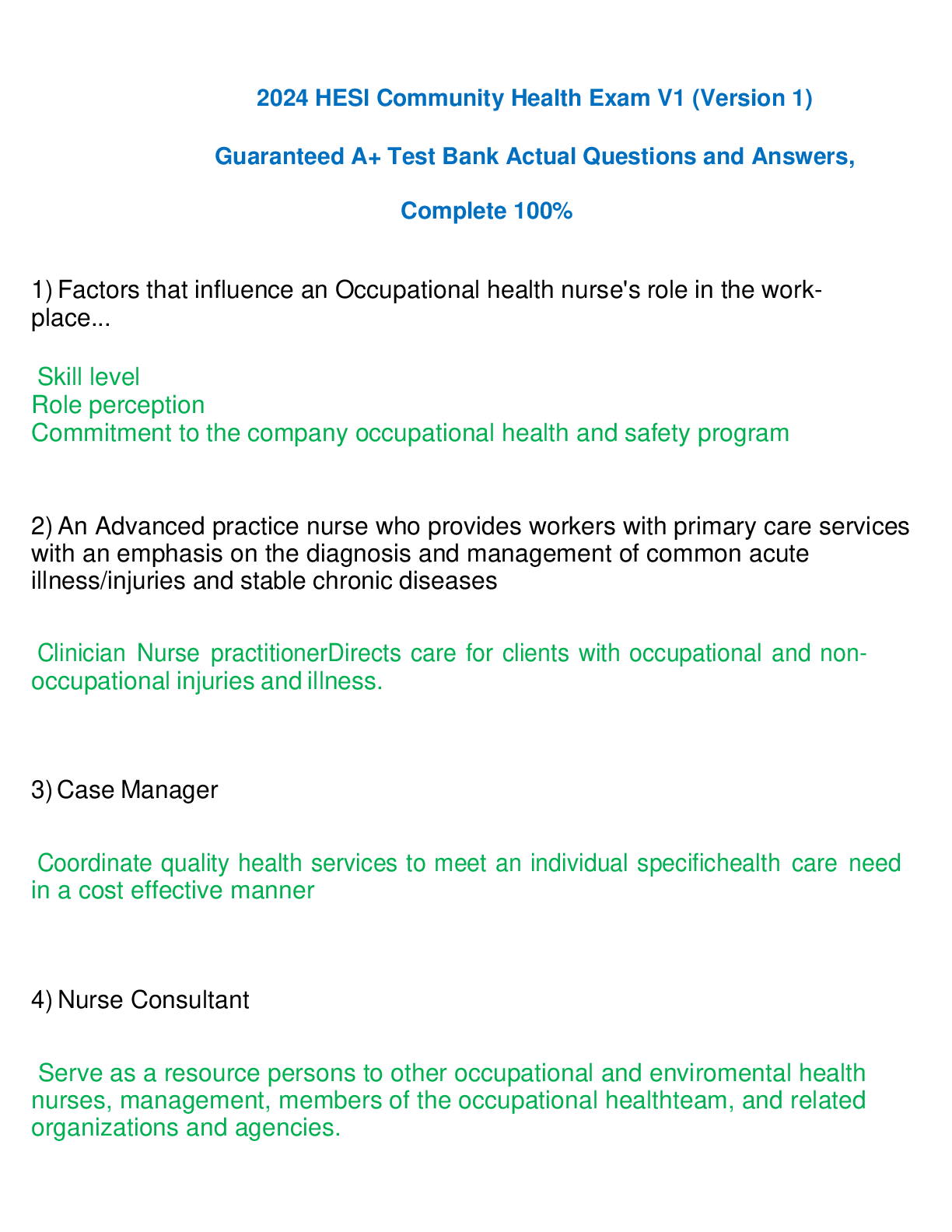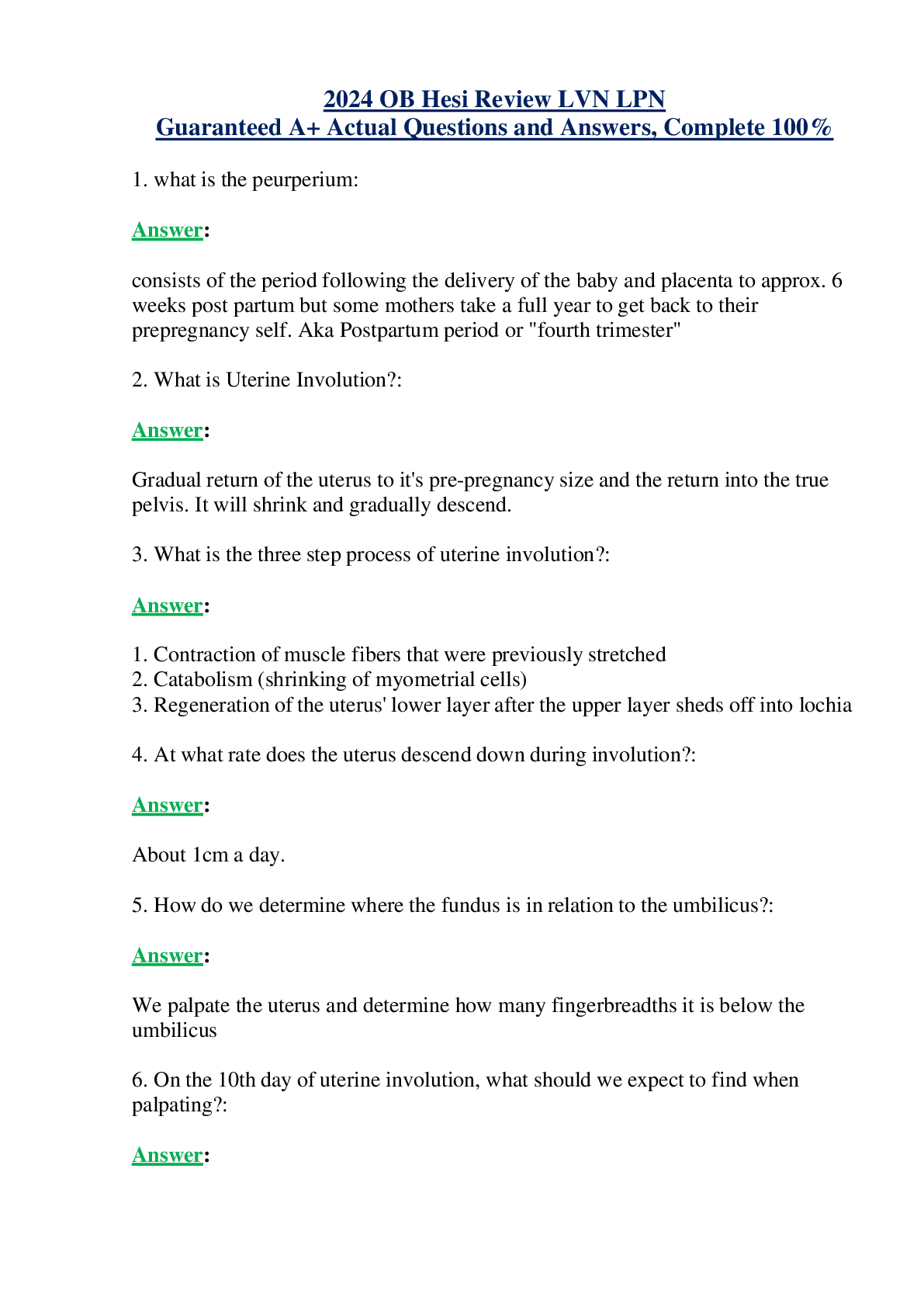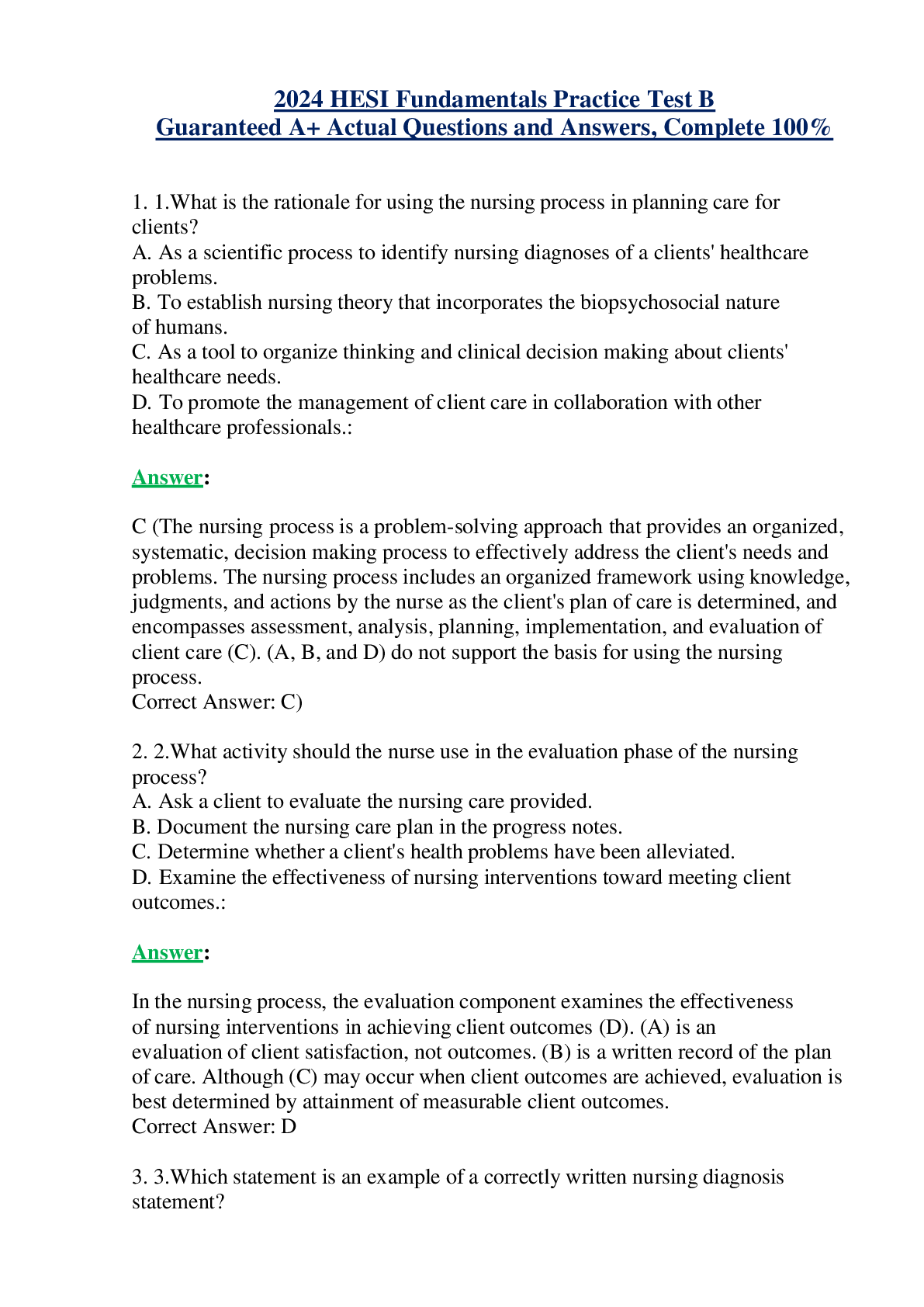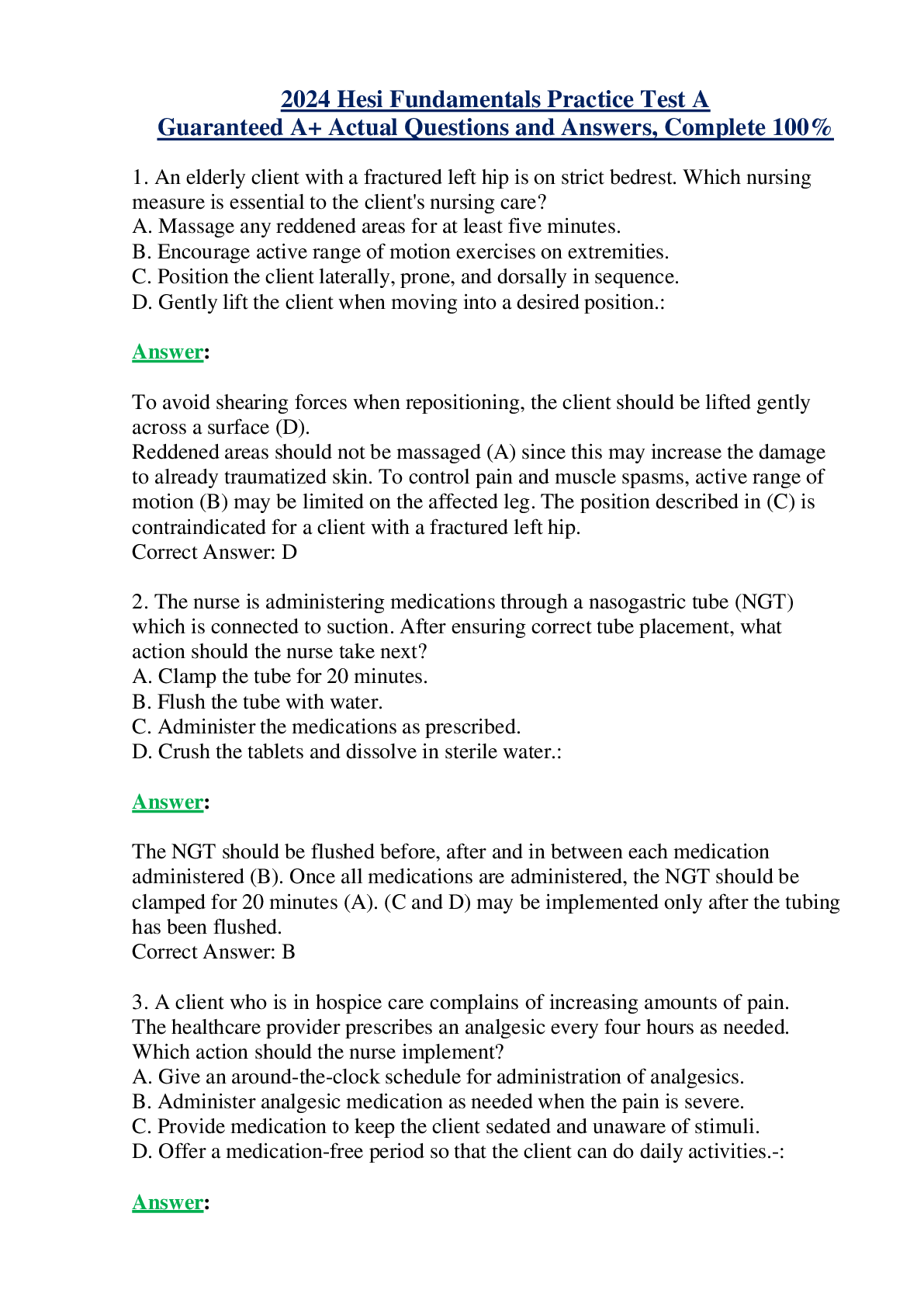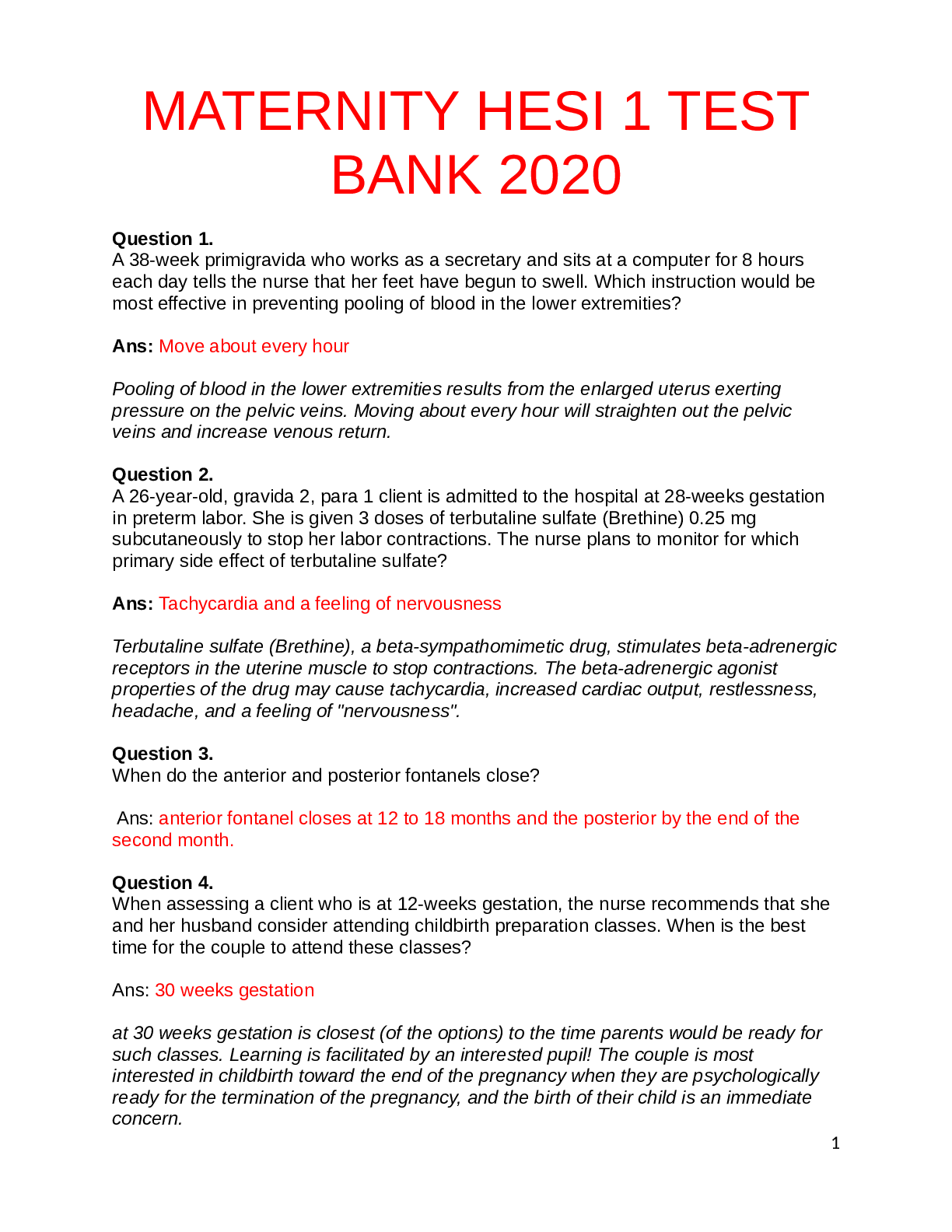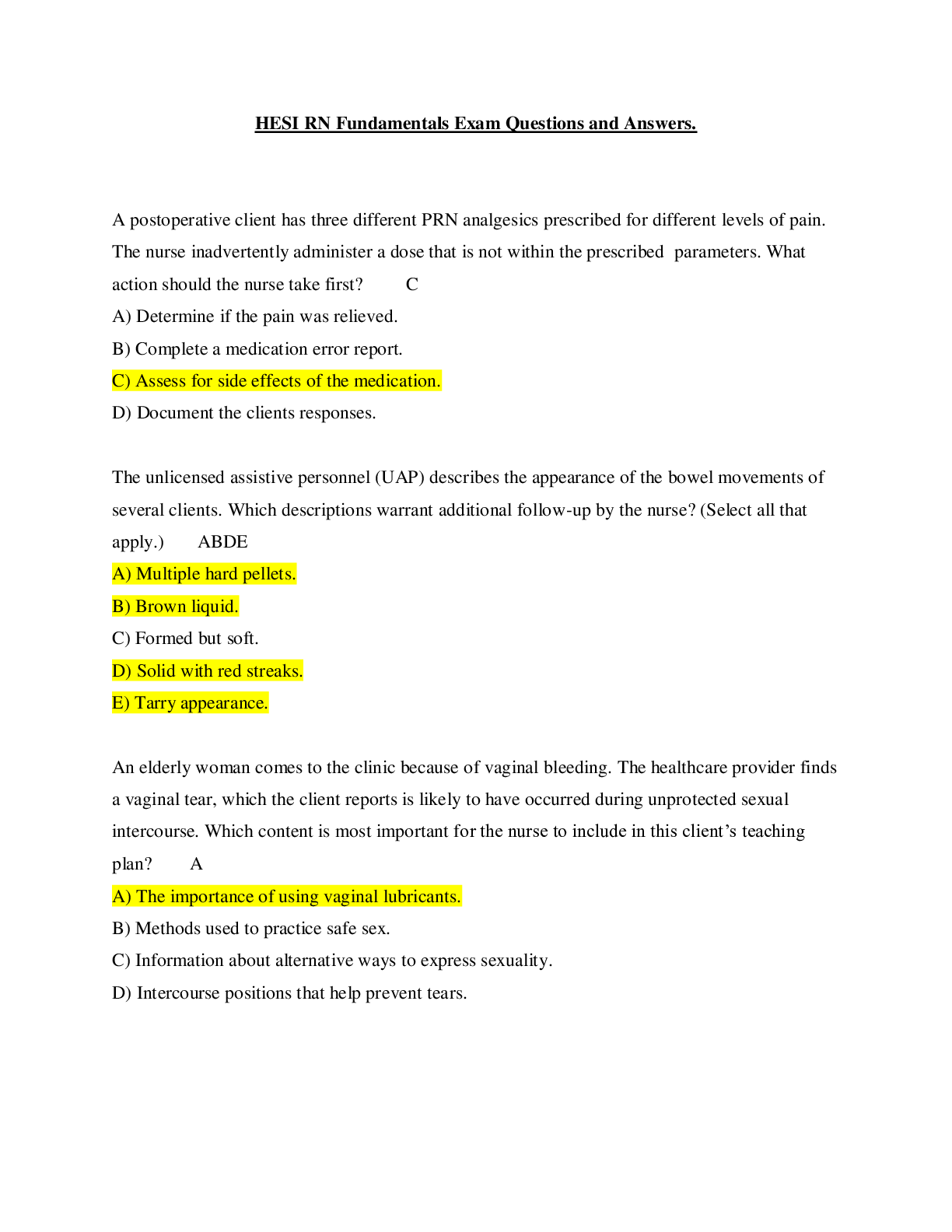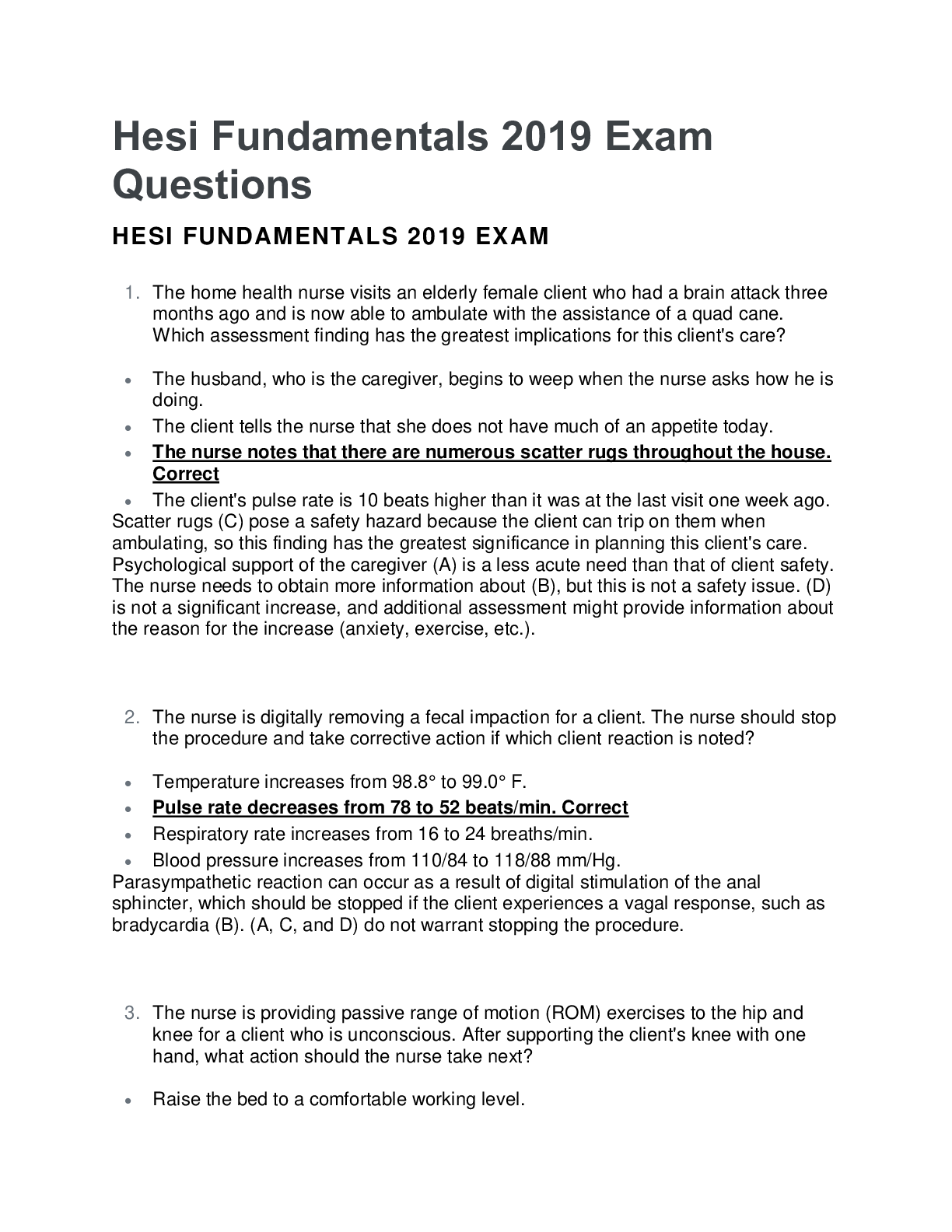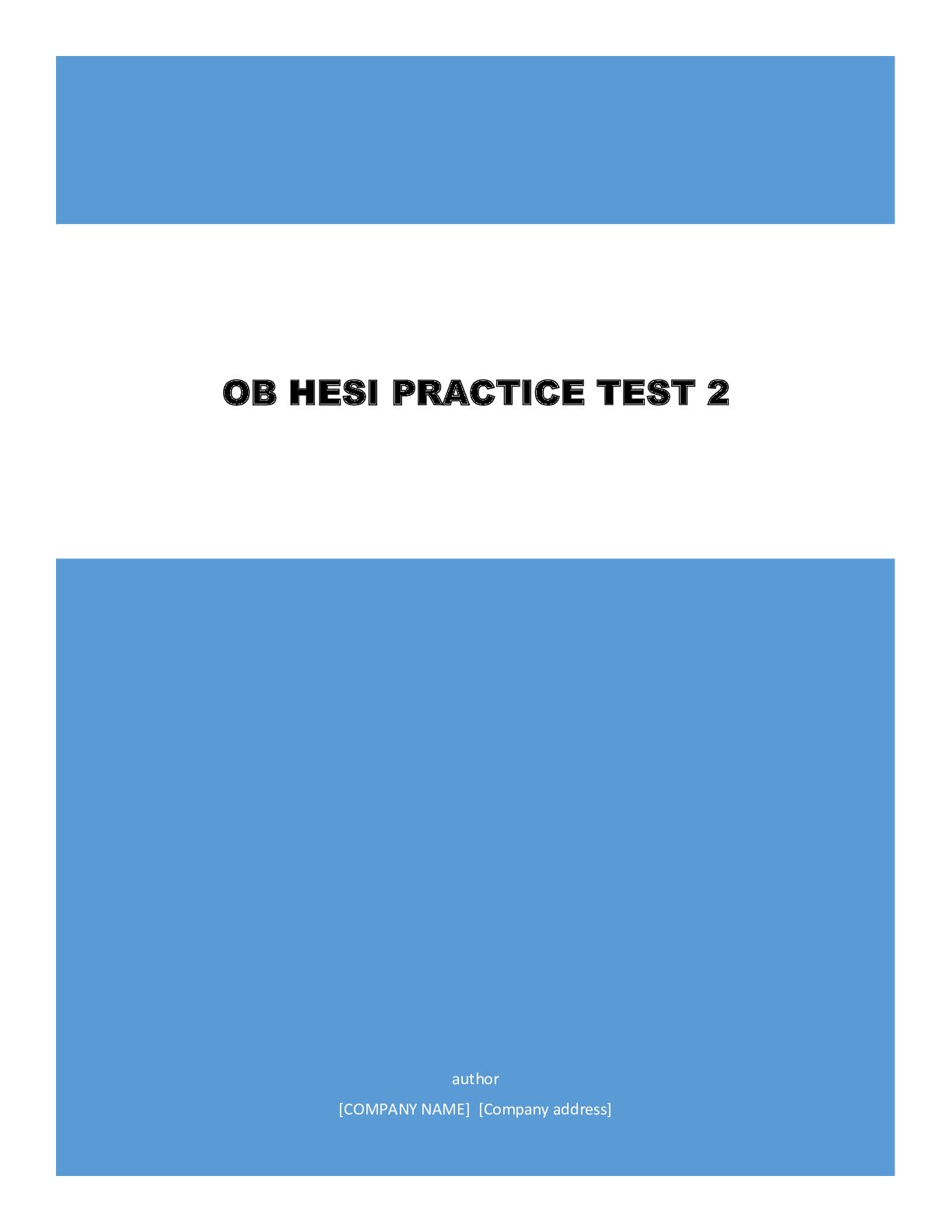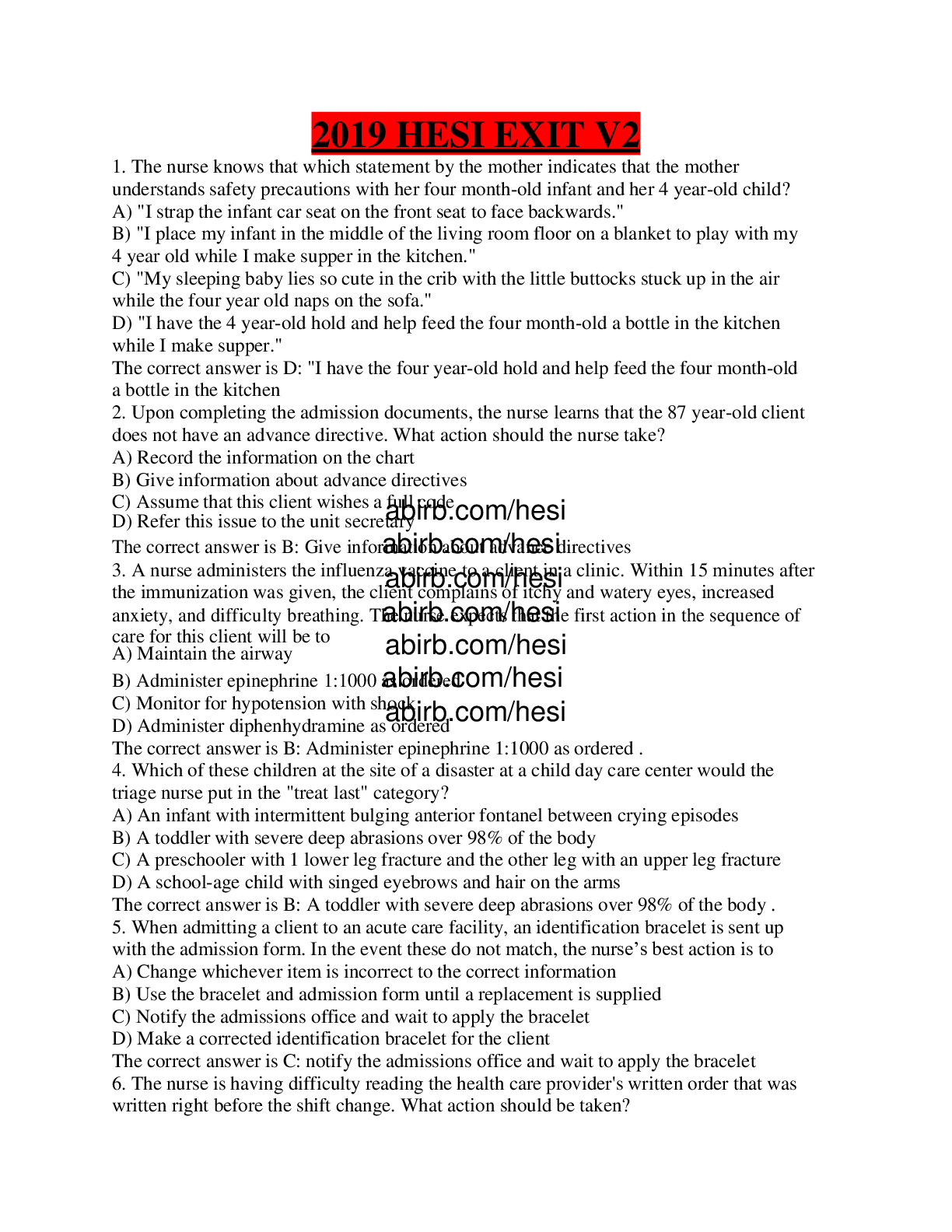HESI > HESI > 2024 Gerontology HESI Practice Test Guaranteed A+ Actual Questions and Answers, Complete 100% (All)
2024 Gerontology HESI Practice Test Guaranteed A+ Actual Questions and Answers, Complete 100%
Document Content and Description Below
1. A frail, elderly client is admitted to the unit with a diagnosis of pneumonia. Which finding is most important for the registered nurse (RN) to report to the healthcare provider? A. Fever and ch... ills B. Confusion and dehydration C. Crackles in the lung fields D. Nausea and vomiting: Answer: B. Confusion and dehydration Rationale: Confusion and dehydration (B) are findings of inadequate oxygenation and perfusion in this frail elderly client. (A), (C) and (D) are all common with pneumonia, but the most important finding is confusion and evidence of dehydration, which require treatment for this frail elderly client. 2. A frail elderly couple asks the registered nurse (RN) if they have to watch their salt intake because food does not taste as good as it used to so they have to season most foods. What information should the RN offer the couple? A. Boredom may influence how the taste of food is perceived, and different seasonings can stimulate taste. B. With age, an increase in sodium intake is needed to compensate for a decrease in renal function. C. Short-term memory loss and confusion may be the reason they want to over-season their food. D. Taste buds often are dull due to atrophy so older clients should use other seasonings instead of salt.: Answer: D. Taste buds are often dull due to atrophy so older clients should use other seasonings instead of salt. Rationale: Taste buds atrophy with normal aging, which influences an older client's sensitivity to taste and is often compensated for the use of stronger tasting seasonings. (A), (B), and (C) are not normal aging processes related to taste. 3. After taking a 10-day course of an antibiotic that was ineffective, a frail, elderly client with chronic obstructive pulmonary disease (COPD) is admitted for pneumonia. The client has a long history of smoking and still smokes a pack of cigarettes a day. Which finding should the registered nurse (RN) report to the healthcare provider? A. Barrel chest with increased chest diameter B. Crackles and pulse oximetry level of 88% C. Low hemoglobin and hematocrit levels D. Arterial blood gases indicating respiratory acidosis: Answer: B. Crackles and pulse oximetry level of 88% Rationale: With pneumonia, crackles in the lungs and low O2 saturation (B) can impact adequate oxygenation, which should be reported to the HCP. (A) occurs due to chronic hyperinflation of the lungs and is common in clients with COPD. Anemia (C) is frequently identified in clients with COPD, and respiratory acidosis (D) due to CO2 retention contributes to a lower blood pH. [Show More]
Last updated: 3 months ago
Preview 1 out of 20 pages
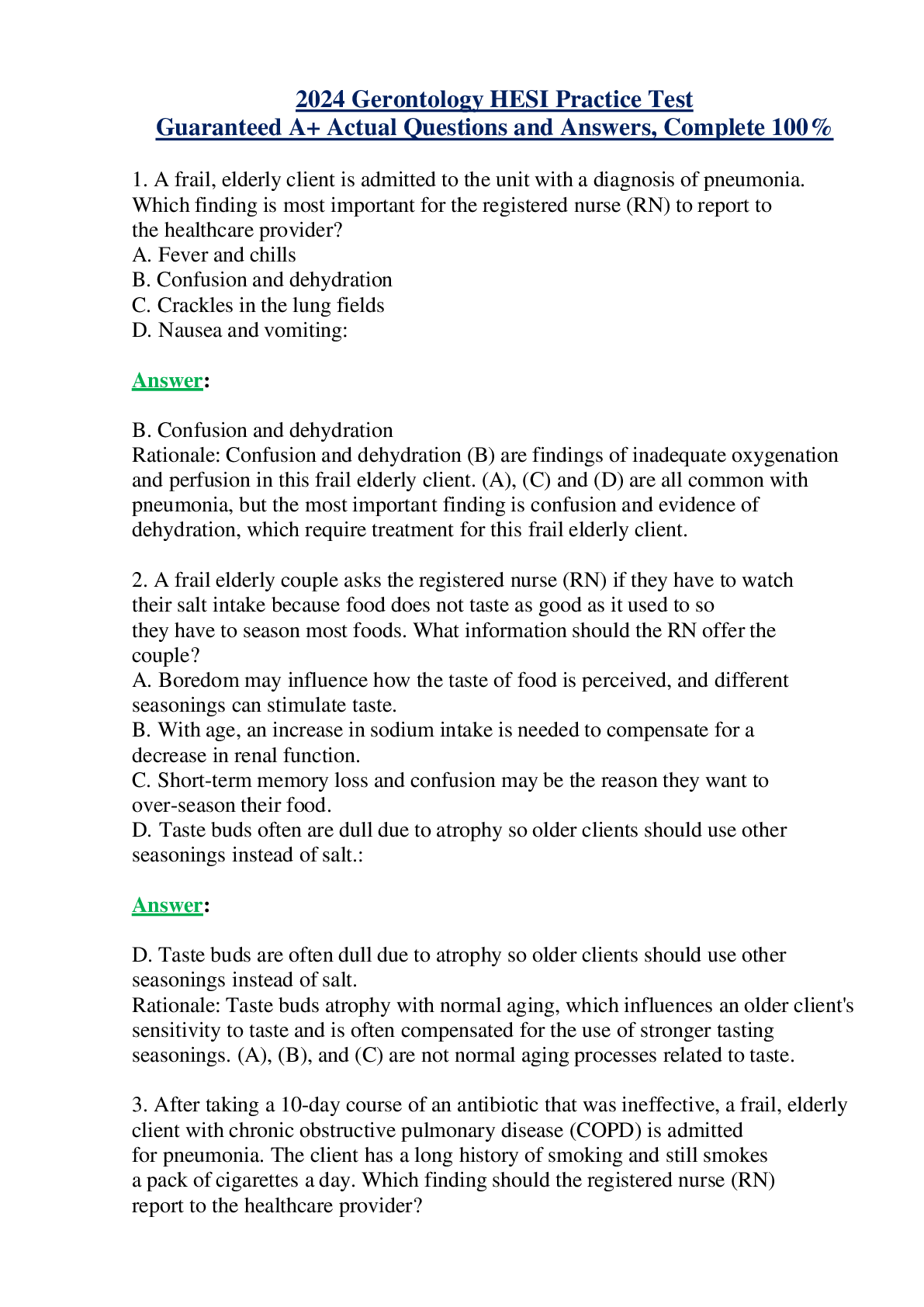
Buy this document to get the full access instantly
Instant Download Access after purchase
Add to cartInstant download
We Accept:

Reviews( 0 )
$13.00
Document information
Connected school, study & course
About the document
Uploaded On
Mar 14, 2024
Number of pages
20
Written in
Additional information
This document has been written for:
Uploaded
Mar 14, 2024
Downloads
0
Views
7

